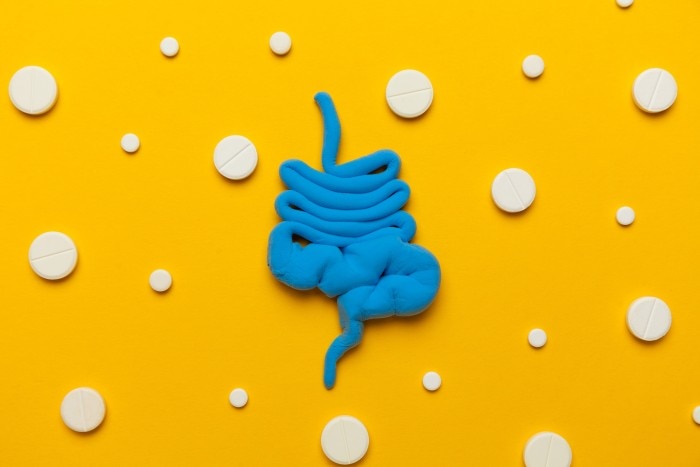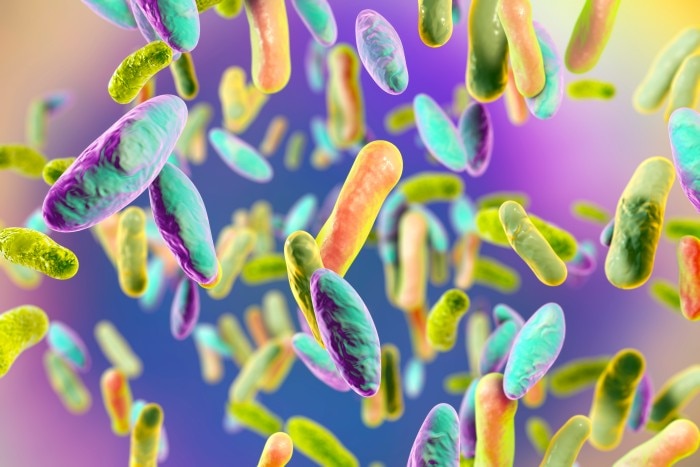MENU
PL | PLN
-
-
-
-
- Forum Labo 2025
- Advanced Therapies Week (ATW) 2025
- SLAS Europe 2025
- Bioprocessing Summit Europe 2025
- Medlab Middle East 2025
- SLAS International 2025
- Biologics World Nordics 2025
- ASIA LABEX: The Lab Show 2025
- BioProcess International Europe 2025
- ISEV 2025
- Future Labs Live 2025
- DataHow Symposium 2025
- Cell 2025
- LabDays 2025
- ASIA LABEX: The Lab Show 2025
-
-
-
-
- Forum Labo 2025
- Advanced Therapies Week (ATW) 2025
- SLAS Europe 2025
- Bioprocessing Summit Europe 2025
- Medlab Middle East 2025
- SLAS International 2025
- Biologics World Nordics 2025
- ASIA LABEX: The Lab Show 2025
- BioProcess International Europe 2025
- ISEV 2025
- Future Labs Live 2025
- DataHow Symposium 2025
- Cell 2025
- LabDays 2025
- ASIA LABEX: The Lab Show 2025
PL | PLN
-
- Benchtop Centrifuges
- Floor-Standing Centrifuges
- Refrigerated Centrifuges
- Microcentrifuges
- Multipurpose Centrifuges
- High-Speed Centrifuges
- Ultracentrifuges
- Concentrator
- IVD Products
- High-Speed and Ultracentrifuge Consumables
- Centrifuge Tubes
- Centrifuge Plates
- Device Management Software
- Sample and Information Management
-
- All Pipettes, Dispensers & Automated Liquid Handlers
- Mechanical Pipettes
- Electronic Pipettes
- Multi-Channel Pipettes
- Positive Displacement Pipettes & Dispensers
- Automated Pipetting
- Bottle-Top Dispensers
- Pipette Controllers
- Pipette Tips
- Automation Consumables
- Dispenser & Pipette Accessories
- Automation Accessories
- Dispenser & Pipette Services
Sorry, we couldn't find anything on our website containing your search term.

We are 99 Percent Microbiome and Only One Percent Human
Beyond Science
- Culture of Microorganisms
- Off the Bench
- Off the Bench
- Inspiring Science
The impact of gut bacteria on the effect of medications is much greater than previously thought. Biochemist and pharmacist Michael Zimmermann explains how this finding could revolutionize medicine
A quick Internet search for books on “the gut” resulted in more than a thousand hits from this popular realm of science alone. Does the gut deserve all this attention?
Michael Zimmermann: Subjectively, I would of course agree because it’s our area of research! But, more seriously: the gut does influence our health. It is one of the body’s main points of contact with the outside world – among other things, through the intake of food. This is why it is important to know what inhabits the gut – specifically, hundreds of different species of microorganisms, bacteria in particular, but also viruses, bacteriophages (editorial note: viruses that exclusively infect bacteria), and fungi. Together they make up our microbiome, our microbial ecosystem. Humans have multiple microbiomes, for example, in the mouth and throat area or on the skin, but the gut microbiome is the largest in terms of its mass and diversity.
How does this microbiome form?
Michael Zimmermann: We are sterile at the beginning of life and gradually become settled by microorganisms. We pack our backpacks, so to speak – with microorganisms from Mom, Dad, daycare or travel. The microbiome changes significantly until the third year of life and then stabilizes. Its composition depends heavily on the type of our nutrition, but lifestyle factors and medications also play a role.
What makes these intestinal inhabitants so interesting from a molecular biology standpoint?
Zimmermann: Looking at the genes of these intestinal microorganisms is fascinating. I like to say, simplistically: we are all ninety-nine percent microbiome and only one percent human. We carry two to three million microbial genes in our gut. That’s 100 to 150 times more than the number of human genes. And while the human genome is a good 99 percent identical, the composition of the microbiome inside the intestinal tract can differ up to 80 percent. That offers an important provisional explanation as to why the effect of medications can differ so much from person to person.
What actually happens in the gut when we take medications?
Zimmermann: Medications can interact with gut bacteria in completely different ways. They can suppress certain bacteria, which can have an effect on the composition and function of the gut microbiome. On the other hand, gut bacteria have the ability to metabolize active pharmaceuticals and alter them chemically in such a way that they become either inactive, or even more active, or cause side effects. For example, the collateral consequences of antibiotics are well-known. They’re made to make life difficult for bacteria – unfortunately, that includes gut bacteria.
Do gut microbes play a role for all medications?
Zimmermann: The majority of medications are absorbed well in the small intestine – we have fewer microorganisms there than in the large intestine. Some medications travel further, though. Microbes become more densely-packed in the large intestine, reaching billions of bacteria per milliliter – a toothpaste-like brew of bacteria! This is where interactions with medications are more likely to occur. Some medications are also metabolized by the liver and subsequently make it back to the intestines. There, they can cause severe side effects, but also become inactivated, which means that they lose their effectiveness.
Michael Zimmermann: Subjectively, I would of course agree because it’s our area of research! But, more seriously: the gut does influence our health. It is one of the body’s main points of contact with the outside world – among other things, through the intake of food. This is why it is important to know what inhabits the gut – specifically, hundreds of different species of microorganisms, bacteria in particular, but also viruses, bacteriophages (editorial note: viruses that exclusively infect bacteria), and fungi. Together they make up our microbiome, our microbial ecosystem. Humans have multiple microbiomes, for example, in the mouth and throat area or on the skin, but the gut microbiome is the largest in terms of its mass and diversity.
How does this microbiome form?
Michael Zimmermann: We are sterile at the beginning of life and gradually become settled by microorganisms. We pack our backpacks, so to speak – with microorganisms from Mom, Dad, daycare or travel. The microbiome changes significantly until the third year of life and then stabilizes. Its composition depends heavily on the type of our nutrition, but lifestyle factors and medications also play a role.
What makes these intestinal inhabitants so interesting from a molecular biology standpoint?
Zimmermann: Looking at the genes of these intestinal microorganisms is fascinating. I like to say, simplistically: we are all ninety-nine percent microbiome and only one percent human. We carry two to three million microbial genes in our gut. That’s 100 to 150 times more than the number of human genes. And while the human genome is a good 99 percent identical, the composition of the microbiome inside the intestinal tract can differ up to 80 percent. That offers an important provisional explanation as to why the effect of medications can differ so much from person to person.
What actually happens in the gut when we take medications?
Zimmermann: Medications can interact with gut bacteria in completely different ways. They can suppress certain bacteria, which can have an effect on the composition and function of the gut microbiome. On the other hand, gut bacteria have the ability to metabolize active pharmaceuticals and alter them chemically in such a way that they become either inactive, or even more active, or cause side effects. For example, the collateral consequences of antibiotics are well-known. They’re made to make life difficult for bacteria – unfortunately, that includes gut bacteria.
Do gut microbes play a role for all medications?
Zimmermann: The majority of medications are absorbed well in the small intestine – we have fewer microorganisms there than in the large intestine. Some medications travel further, though. Microbes become more densely-packed in the large intestine, reaching billions of bacteria per milliliter – a toothpaste-like brew of bacteria! This is where interactions with medications are more likely to occur. Some medications are also metabolized by the liver and subsequently make it back to the intestines. There, they can cause severe side effects, but also become inactivated, which means that they lose their effectiveness.
Read more
Read less

You look into how the intestinal microbiome influences the effects of medications. How did you get started?
Zimmermann: There have been anecdotal examples since the 1960s hinting at this connection. We wanted to investigate it systematically, and we embarked on our studies a number of years ago. The initial question was how approximately 300 medications are metabolized by the microbiome, as well as by individual intestinal bacteria. From that, we hoped to find clues regarding interpersonal differences in medication response. Indeed, we found out that gut bacteria have the capability to change active substances chemically as well as metabolize them – and that the effects and side effects of medications are potentially heavily dependent on the patient’s microbiome.
What is your concrete approach? Let’s have a look into your lab!
Zimmermann: We take stool samples from patients and first sequence the entire microbiome, which means that we determine the genetic makeup of all the bacteria. Simultaneously, we grow entire microbiomes in test tubes from the stool samples collected from various people. However, we also study individual bacteria, and we look at their interactions with medications under laboratory conditions as well as in mouse models. With the help of genetic technology methods, we find out which microbial enzymes are responsible for metabolizing a certain drug.
Which medications are you researching?
Zimmermann: We have two approaches: one of them follows scientific curiosity. By using 300 medications, we have attempted to cover the chemical diversity of drugs and groups of active ingredients. Alongside that, we collaborate with clinical partners; during these collaborations, we focus on specific drug groups. This approach is moving in the direction of personalized medicine.
Does this mean that everyone will be receiving their own personal medication?
Zimmermann: If I drank too much yesterday and woke up today with a headache, I would just take a painkiller. I would not need a personal approach for that. It is more about medications that need to be taken over a longer period of time and the doses of which need to be precisely adjusted. For example, in transplantation medicine, there is a narrow therapeutic window: if the patient receives too much of the required medication, they will lose their new organ, and if they receive too little, they risk infection. In this case it is worth thinking about the microbiome. Psychiatric drugs are very difficult to adjust as well, and this process is still frequently carried out empirically. In these cases, it would be exciting if you could give clinicians instruments that would allow them to shorten this empirical phase. It would also have an economic effect – giving the wrong drug to people over a long period of time is expensive.
Could you do the opposite and change the microbiome to ensure that medications work better?
Zimmermann: Yes, you can influence the microbiome. From simple changes in lifestyle, to taking probiotics and prebiotics – supplements that promote the growth of certain types of bacteria – all the way to transplanting stool from one person to another, which transfers an entire ecosystem. Using bacteriophages, or the gene scissors CRISPR/Cas, it is even possible to narrow in on a microbial gene within the microbiome to remove it from the intestinal microbiome. This kind of personalized medicine means that we adapt the patient to the medication, not the other way around. In the fields of cancer therapy and immunotherapy, but also in psychiatry, there’s a strong clinical interest in this application. In all those fields, it is crucial that medications, as well their dose, are a good fit so that they can achieve the desired effect.
Zimmermann: There have been anecdotal examples since the 1960s hinting at this connection. We wanted to investigate it systematically, and we embarked on our studies a number of years ago. The initial question was how approximately 300 medications are metabolized by the microbiome, as well as by individual intestinal bacteria. From that, we hoped to find clues regarding interpersonal differences in medication response. Indeed, we found out that gut bacteria have the capability to change active substances chemically as well as metabolize them – and that the effects and side effects of medications are potentially heavily dependent on the patient’s microbiome.
What is your concrete approach? Let’s have a look into your lab!
Zimmermann: We take stool samples from patients and first sequence the entire microbiome, which means that we determine the genetic makeup of all the bacteria. Simultaneously, we grow entire microbiomes in test tubes from the stool samples collected from various people. However, we also study individual bacteria, and we look at their interactions with medications under laboratory conditions as well as in mouse models. With the help of genetic technology methods, we find out which microbial enzymes are responsible for metabolizing a certain drug.
Which medications are you researching?
Zimmermann: We have two approaches: one of them follows scientific curiosity. By using 300 medications, we have attempted to cover the chemical diversity of drugs and groups of active ingredients. Alongside that, we collaborate with clinical partners; during these collaborations, we focus on specific drug groups. This approach is moving in the direction of personalized medicine.
Does this mean that everyone will be receiving their own personal medication?
Zimmermann: If I drank too much yesterday and woke up today with a headache, I would just take a painkiller. I would not need a personal approach for that. It is more about medications that need to be taken over a longer period of time and the doses of which need to be precisely adjusted. For example, in transplantation medicine, there is a narrow therapeutic window: if the patient receives too much of the required medication, they will lose their new organ, and if they receive too little, they risk infection. In this case it is worth thinking about the microbiome. Psychiatric drugs are very difficult to adjust as well, and this process is still frequently carried out empirically. In these cases, it would be exciting if you could give clinicians instruments that would allow them to shorten this empirical phase. It would also have an economic effect – giving the wrong drug to people over a long period of time is expensive.
Could you do the opposite and change the microbiome to ensure that medications work better?
Zimmermann: Yes, you can influence the microbiome. From simple changes in lifestyle, to taking probiotics and prebiotics – supplements that promote the growth of certain types of bacteria – all the way to transplanting stool from one person to another, which transfers an entire ecosystem. Using bacteriophages, or the gene scissors CRISPR/Cas, it is even possible to narrow in on a microbial gene within the microbiome to remove it from the intestinal microbiome. This kind of personalized medicine means that we adapt the patient to the medication, not the other way around. In the fields of cancer therapy and immunotherapy, but also in psychiatry, there’s a strong clinical interest in this application. In all those fields, it is crucial that medications, as well their dose, are a good fit so that they can achieve the desired effect.
Read more
Read less
Portrait
Michael Zimmermann is a group leader at the European Molecular Biology Laboratory (EMBL) in Heidelberg, Germany. His Zimmermann Group pursues various experimental approaches to decode molecular mechanisms between the intestinal microbiome and humans.

